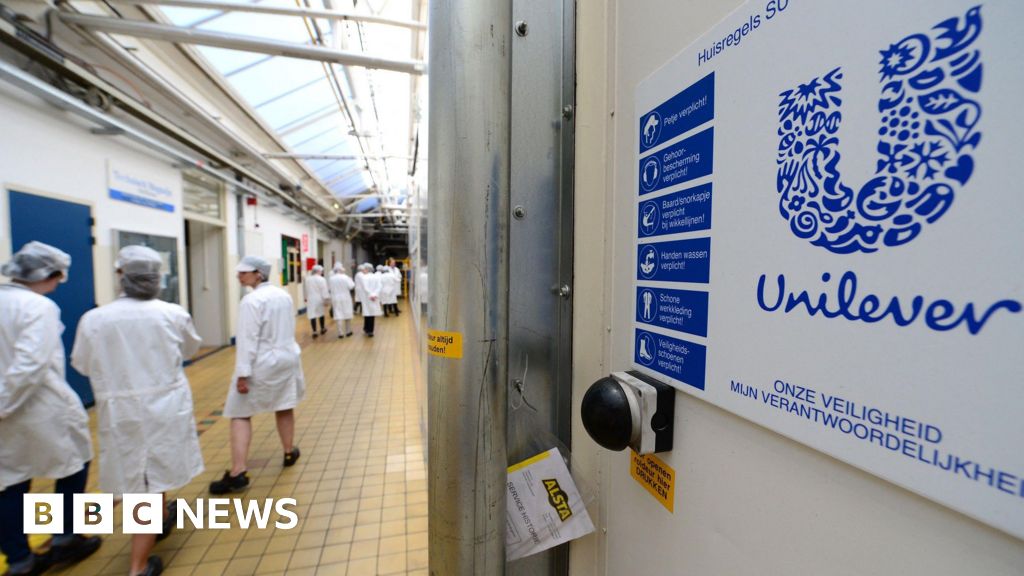Image source, Getty Images
- Author, Faarea Masud
- Role, BBC business reporter
Unilever plans to cut a third of its office-based roles in Europe by the end of 2025, the consumer goods giant has said.
It comes after it announced in March that it would be cutting costs, affecting about 7,500 roles globally.
The firm said it would begin a consultation process with those affected by cuts in Europe, with about 3,200 jobs being axed in the region.
“We recognise the significant anxiety that these proposals are causing among our people,” it said in a statement.
The changes are part of efforts to revive growth at the firm under boss Hein Schumacher who took over as chief executive last year after underperformance in recent years.
It was not immediately clear where the job cuts would fall.
Unilever has major offices in London and Rotterdam, where the company maintained dual headquarters for decades before deciding in 2020 to unify its legal structure in the UK. At the time, it said it would not affect staffing.
“These measures mean the biggest job cuts in Unilever for decades,” Hermann Soggeberg, the head of Unilever’s European Works Council, said in a letter to staff.
A Unilever spokesperson said: “In March, we announced the launch of a comprehensive productivity programme, to drive focus and growth through a leaner and more accountable organisation.”
Those plans also included the decision to split off its ice cream business, which includes the Wall’s, Ben & Jerry’s and Magnum brands. Unilever said the shake-up would help it to “do fewer things better”.
In the UK, the company produces ice cream in north-east Gloucestershire, Marmite and Bovril in Burton-on-Trent and Pot Noodles in Newport, and employs 6,000 staff in total.
“From a shareholder’s point of view, a turnaround was clearly required at an underperforming business,” said Jack Martin, a portfolio manager at Oberon Investments.
Unilever is one of the largest consumer goods companies in the word, including the Dove beauty brand, Persil washing up power and Lynx body spray.
In May, Unilever apologised after being reported to the UK’s Environment Agency after soapy water was “incorrectly diverted” from its soap powder factory into an already-polluted river.

